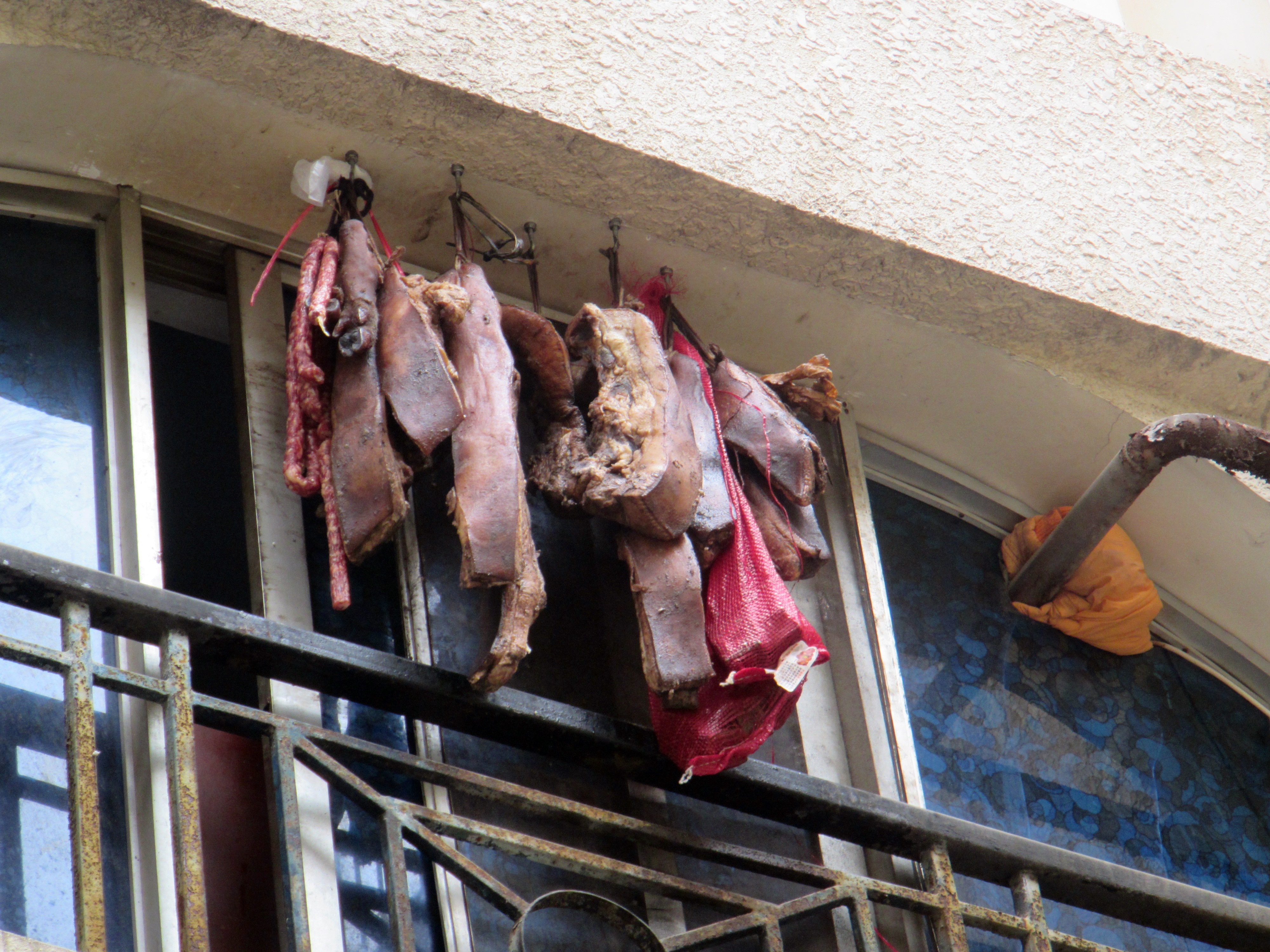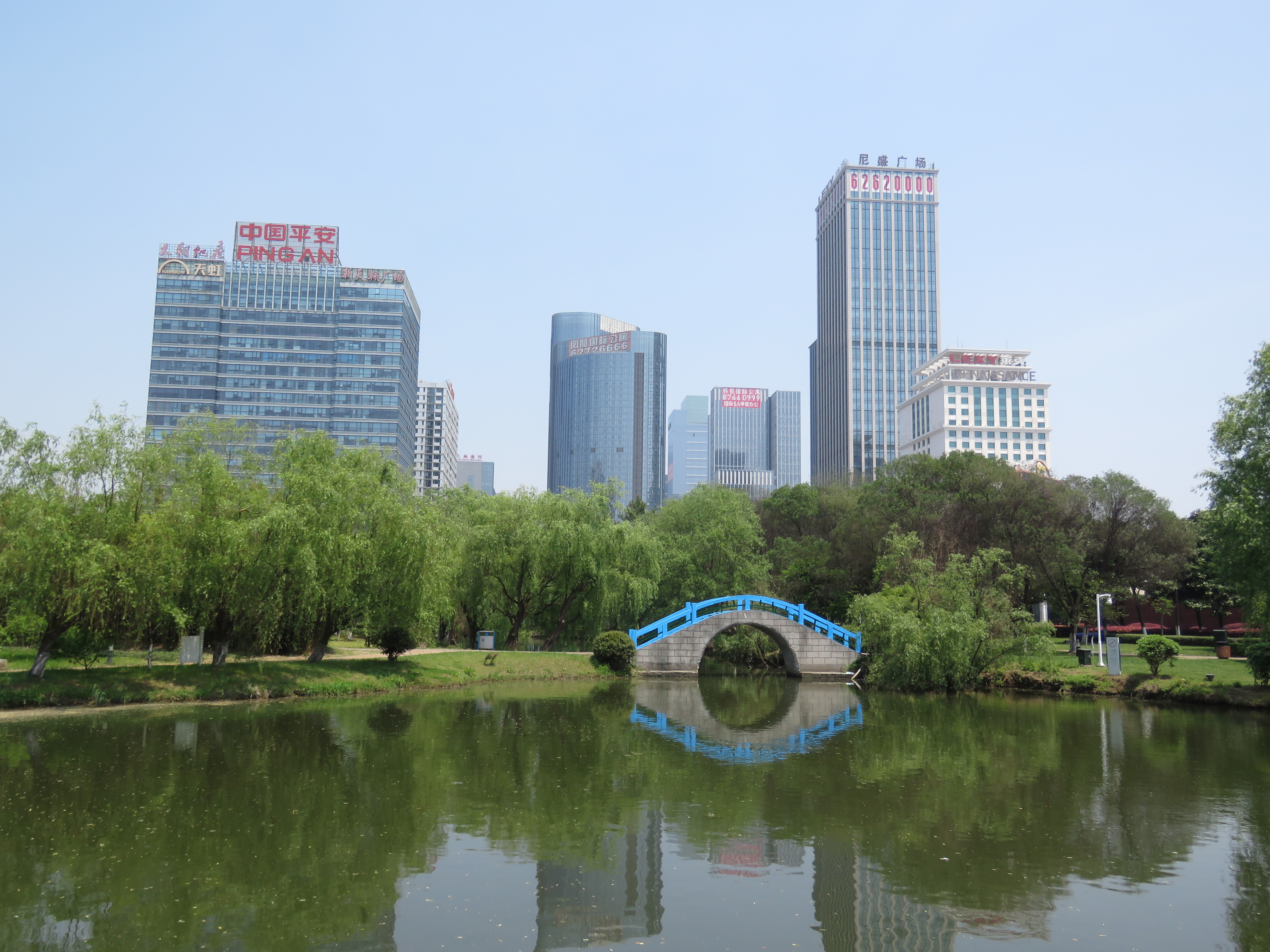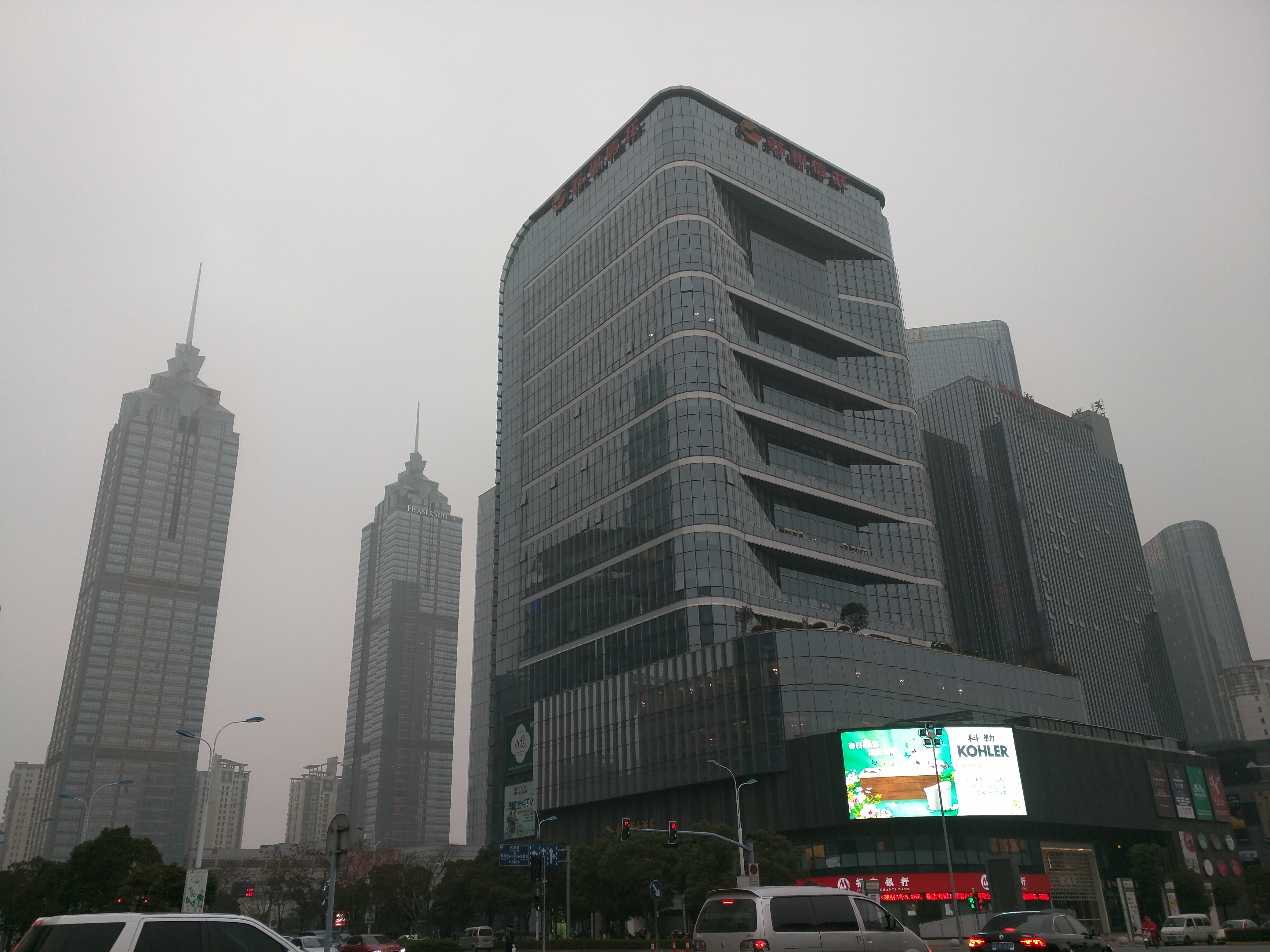Dave and I had plans today to explore the city. Suzhou recently opened its 3rd metro line, and it has made all sorts of local attractions easier to get to. We thought exploring the city and getting some more photos would be a grand way to spend the day…but then the smog came…
I realized while talking to my family this morning that many of the people back home can’t even begin to understand what pollution is all about and the many ways it impacts our lives here, so I thought it might make for an interesting article.
**Note** Very few pictures in this article will be my own…they’ve mostly been borrowed from the internet. If I did take the picture, I’ll indicate it in the caption
Our Global Pollution Problem
Pollution is a problem all over the world. In India, I saw unbelievable amounts of garbage on the road, and I brushed my teeth with bottled water to avoid getting sick from the tap water.

Although much better than India and China, Vietnam also has some pretty terrible pollution problems. The number of motorcyles on the road leave your lungs pretty sore by the end of a day sight-seeing in HoChiMin City. Phu Quoc is also a giant dumping ground for garbage.
Even in the beautiful Caribbean, you can find all sorts of pollution issues. Water there is generally unsafe to drink, and although resorts do a good job of keeping their shores clean, the same can’t be said in other areas of the country.

Pollution is a problem globally, there’s no doubt. I look forward to my time in Canada every year. The fresh air smells so fantastic, and even in the heart of Winnipeg, I’ve never smelt the tinny scent of PM2.5. Yet…where do you think this picture was taken?

What I’m trying to say here is that pollution is an issue everywhere. If you’re lucky enough to never have seen anything like this with your own eyes, you are a minority on this planet and this is a case where being a minority is a good thing…
The Lingo
In Guizhou (the Chinese province where we lived prior to moving to Suzhou), the pollution isn’t so bad. That’s not to say the air was perfect there (because it’s such a poor province, many of the vehicles on the road are old and blow large amounts of black exhaust), but we never needed masks or felt like our health was at risk.

In Suzhou, things are different. We are only about 100km west of Shanghai, so we get a lot of our pollution from the factories out that way. On a bad day, our AQI level will go up to 200 or occasionally 300. During the current sandstorm, we are sitting somewhere between 450 and 600 on the AQI scale. What exactly does that mean, you might ask?

AQI is the global term that indicates how clean the air is in any particular place. Air Quality Index becomes a very important part of your life when you live in a city with a pollution problem. Most people have apps on their phones that tell them whether they should wear a mask outside. I don’t use an app because I have an easier way to tell. Suzhou’s iconic Pants Building is within eyesight of my apartment. I make a point of looking out the window every day, and I can usually tell how bad the pollution is by how clearly I can see the pants building.

Something else people are aware of here in Suzhou are the different KINDS of pollution. I’ll begin explaining this with a story…
Last year, one of my jobs as a teacher was to help students prepare for their IGCSE spoken exams. To do that, I met with students individually, gave them a topic and had them tell me what they could about that topic. The topic I chose one day was ‘The Environment’. One girl really impressed me, as she started rattling off different types of air pollution (PM2.5, PM10 etc.). I was FLOORED that she knew those terms. I had only lived in Suzhou for a few months at that point.
Now, these terms are part of my regular vocabulary. I frequently say things like ‘PM2.5 levels are brutal this week’, or ‘well this stand storm is mostly bringing in PM10 particles, which aren’t QUITE so bad’. All this ‘PM’ talk refers to the size of the particles. PM10 particles are slightly bigger, but equally as harmful as PM2.5. Both get trapped in your lungs and build up over time and both are linked to lung cancer, lung disease and even brain issues. Of course, living in China for a short-term period doesn’t mean that I’ll come home with lung cancer, but the elderly in China really do suffer.
The Effects
Pollution is more than just something you see on the news. It’s something that is real and it affects a large portion of the world on a day to day basis. Here are some of the ways it effects me:
- I sometimes need to wear a mask to go outside
- I constantly worry about the quality of air in my home and at work
- I spend hundreds of dollars every year on filters and machines designed to clean my air
- I have had a lung infection so bad that I needed to be on 4 different medications to get better. I was using an asthma puffer for 3 months after that infection.
- Colds last longer and are much more severe than they are elsewhere I’ve lived
- If I don’t ride my e-bike for a few days, I will get dust on my pants when I sit down.
- I dry my clothes in my bathroom because if I dry them outside, they’ll be dirty by the time I wear them again (most people in China don’t have clothes dryers)
- Hanging onto a railing as I climb up or down outdoor stairs will leave me with dirty hands.
- I go into coughing fits when I go to a country with clean air. My lungs literally try and eject the garbage that has built up over the months.
- After a particularly dusty day, I’ll wake up with build up in my eyes and a bit of a sore throat.
- When the PM2.5 is especially bad (usually in January or February), you can actually taste metal in the air.
- I often worry about the long-term health hazards of pollution. The obvious ones don’t worry me as much (lung cancer, emphysema etc.) but after recently discovering that PM2.5 is connected to alzymers disease, I’ve been in a constant state of worrying about the health of my brain.
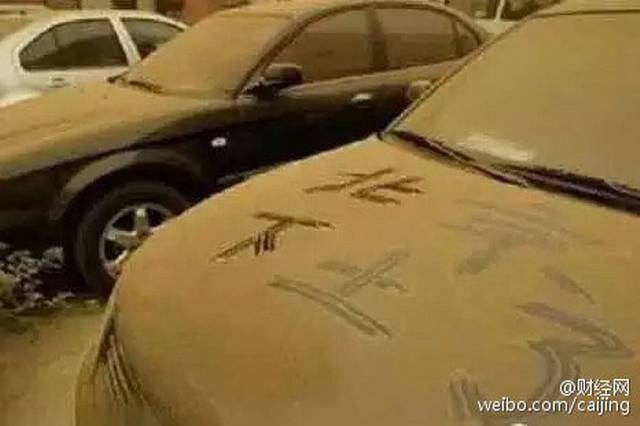
Pollution levels are a constant presence in my life. I need to know when they’re high so I can turn on my air purifier. I also need to know about the air quality so that I know when it’s appropriate for me to partake in one of my favourite pastimes: walking.

Since I was just a little girl, I’ve always loved walked. It started with walks around the block with my Pepere, and it evolved into walking my dog in the forest trails of St. Malo Provincial Park. When I moved to Guiyang, walking was one of the ways I dealt with the stress of living in such a difficult city. In Suzhou…taking a walk is off the table some days.
How We Get Through It
On days like today, we mostly stay indoors. At home, we have 2 air purifiers, so we definitely have those running while we’re in the apartment. My classrooms also have air purifiers, but unfortunately, my school doesn’t see an advantage to making sure our offices also have clean air. Air purifiers can be a bit pricey and they seem to become obsolete frequently, making it impossible to find a new filter for a device you purchased only 6 months before. Our solution has been SmartAir Purifiers…they’re a small company that make purifiers that work well, for only 600rmb (most other purifiers that do a decent job cost up to 5000rmb…). If you’re living in mainland China, check out their website. They’re well worth the money.
How This Effects YOU
If you’re reading this from Canada, you might be thinking that I’m crazy for choosing to live here. I know the risks, but I still take them. There are risks living in Manitoba as well. Hitting the ditch in a snow storm, or sliding into oncoming traffic during winter/spring is every bit as much of a risk as living somewhere where pollution is a problem. I check the PM2.5 levels the same as you check the temperature to know how many sweaters you should wear under your parka.

You may also be thinking that countries like China and India are poorly managed and that if they ‘got their acts together’, this wouldn’t be an issue. But let me ask you this….
Where are the majority of your ‘things’ made? The truth of the matter is that we export our pollution to China to cut costs. One of the reasons things are cheaper coming from China is because health and safety standards aren’t as big of a deal here….it’s something to think about before you shop at places like Walmart, Superstore or other ‘low cost’ chains. You’re paying 50 cents less, but the global environment is suffering.
Furthermore…we live in a very wasteful world. I recently got into a heated debate about the use of paper cups in the office. I think they should be banned, whereas other people really like their convenience. What’s important to remember is that by using disposable items (on a regular basis), you’re contributing to our landfill problems, as well as creating a need for more factories in the world. For more information on that, I found this nifty article written by Time Magazine called ‘Throwaway Living’. Be sure to check it out if you’re interested in the topic.
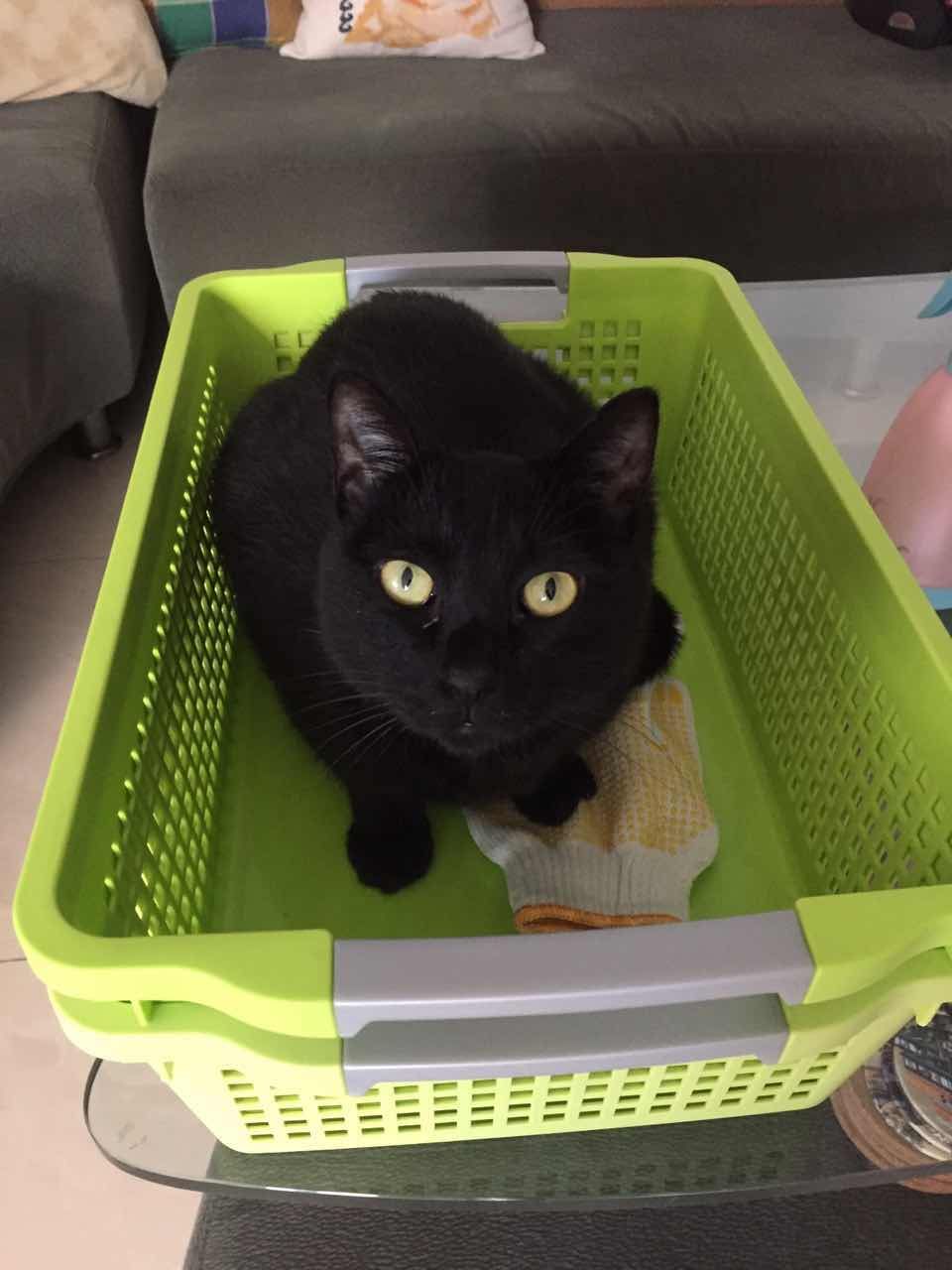
PS..I know it’s been a while, but I have 3 posts in the works:
- Our weekend in Seoul
- Catching up on Life in Suzhou
- Beautiful Suzhou (I’ve been on a picture taking mission lately)







